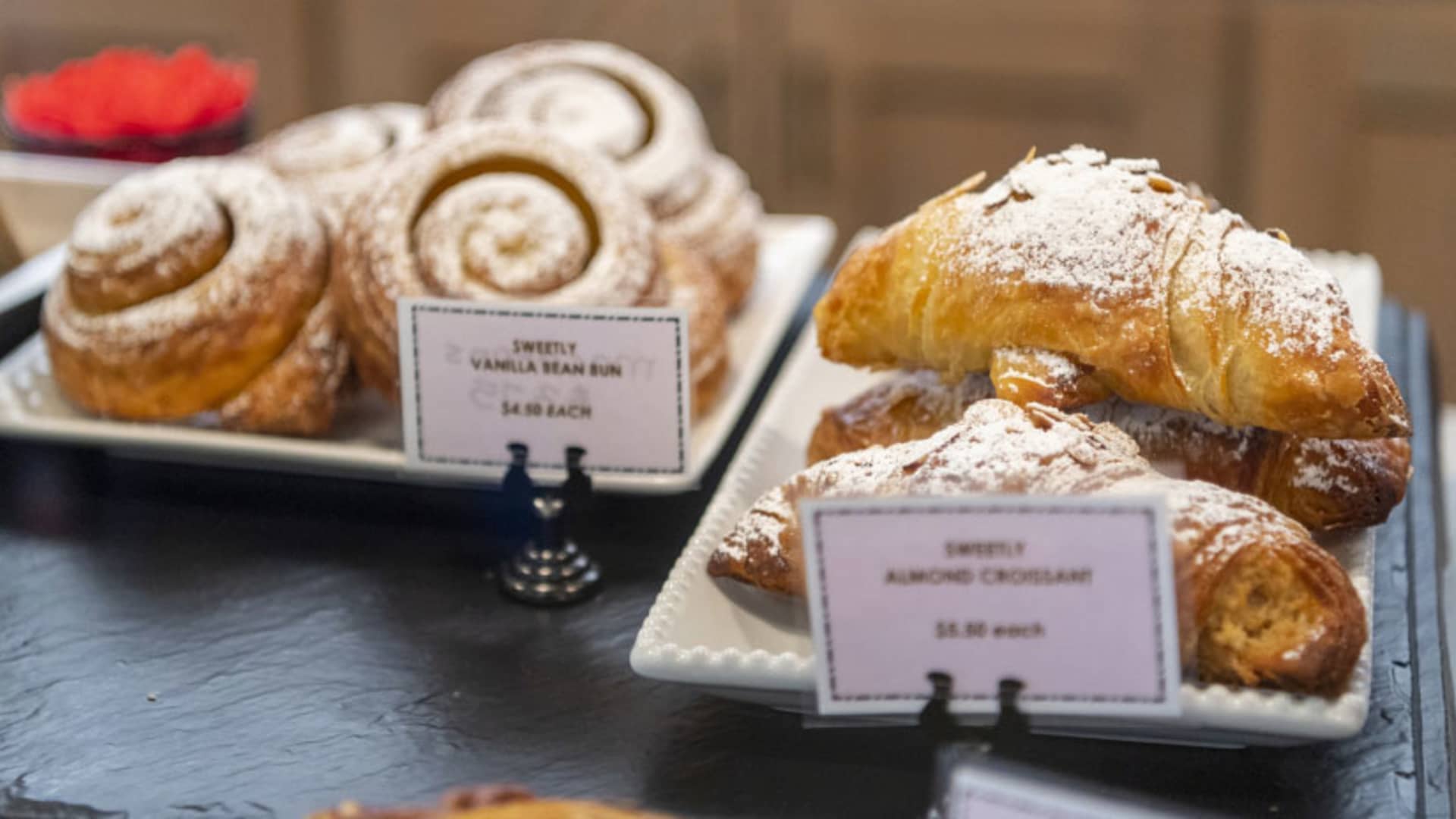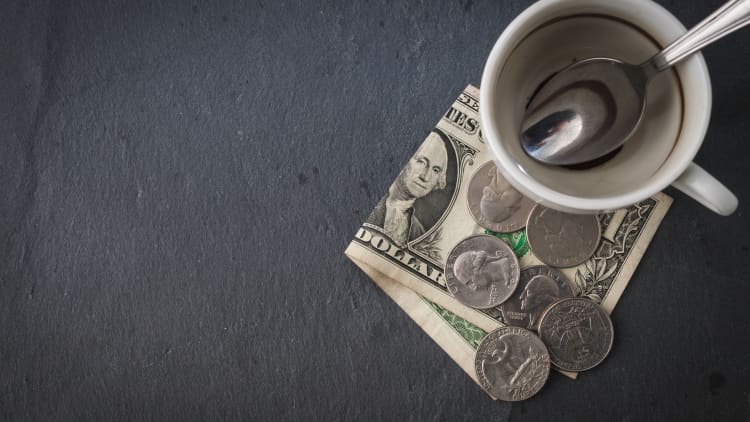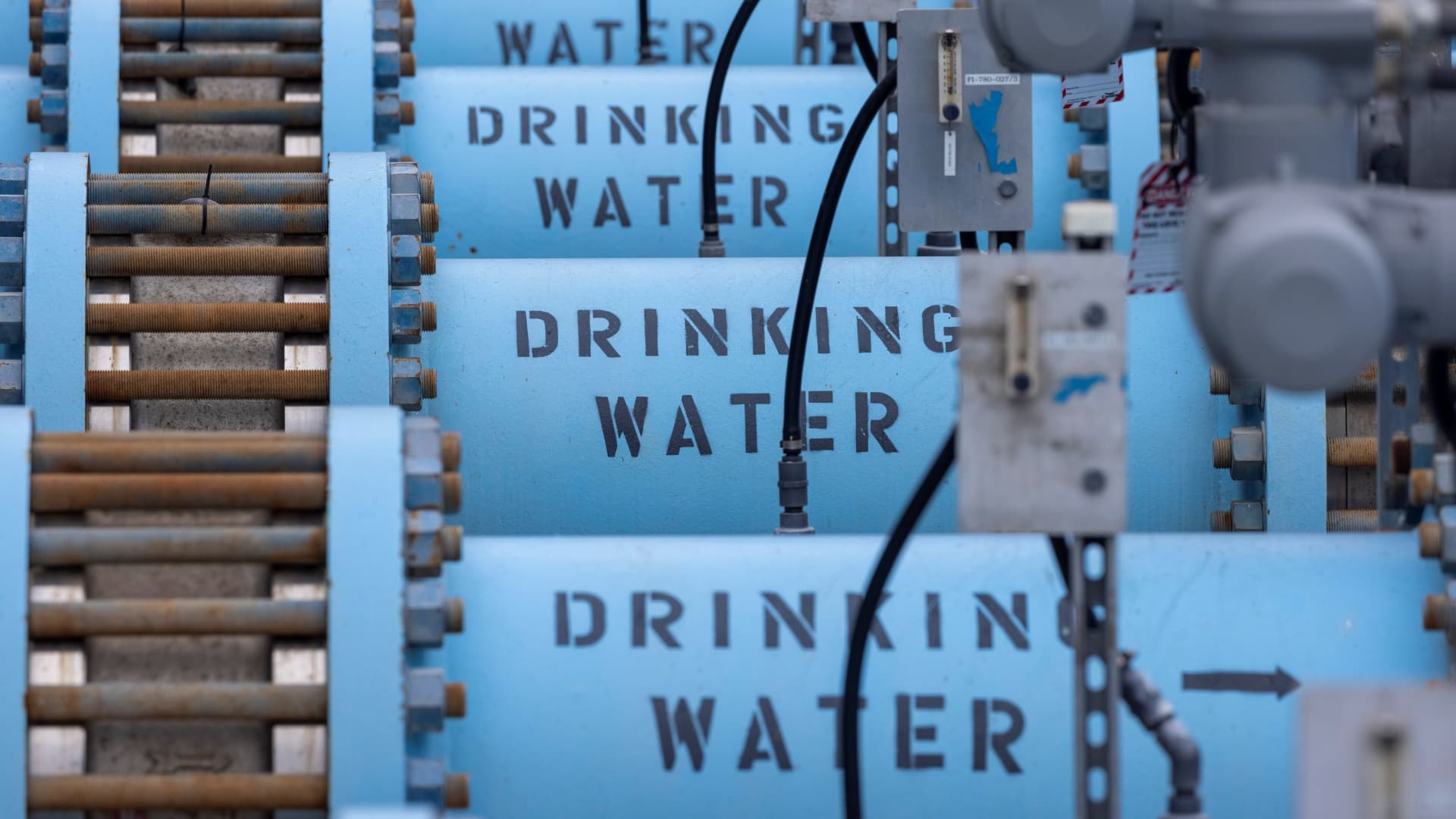

At the Sweetly Bakery & Cafe in Battle Ground, Washington, near Portland, Oregon, customers seem to be feeling a little less generous lately.
With inflation near record highs and consumers increasingly cash-strapped, a gratuity isn’t what it used to be.
“Since everything got more expensive, we’ve seen a decline in tipping,” said Sweetly’s owner, Irina Sirotkina.
The Sweetly Bakery & Cafe in Battleground, Washington
Source: Irina Sirotkina
‘Point-of-sale tipping is what people resist the most’
Even though many Americans said they would tip more than usual once business activities resumed after the Covid pandemic, consumer habits haven’t changed much in the end.
Tipping 20% at a sit-down restaurant is still the standard, etiquette experts say. But there’s less consensus when it comes to a carry-out coffee or take-away snack.
Overall, tipping has remained largely flat at quick-service restaurants, according to Toast’s most recent restaurant trends report. Tips average 17%, nearly unchanged from a year ago.
But when it comes to takeout, customers are tipping less — now down to 14.5%, on average, after climbing earlier in the pandemic, the restaurant software vendor found.
Other payment software providers have also reported that these types of tips have fallen over the last year. For example, Toast’s rival, Square, found that the average tip at quick-service restaurants, which includes cafes and coffee shops, fell from 17.2% to 15.2% from March 2021 to the end of February, according to a report from The Wall Street Journal.
Part of it is tip fatigue.
Eric Plam
founder and CEO of Uptip
“Part of it is tip fatigue,” said Eric Plam, founder and CEO of San Francisco-based startup Uptip, which aims to facilitate cashless tipping.
“During Covid, everyone was shell-shocked and feeling generous,” Plam said. Now, “you are starting to see people pull back a little bit,” he noted, particularly when it comes to point-of-sale tipping, which prompts customers to tip even before they’ve received the product or service.
“This point-of-sale tipping is what people resist the most,” he said, “compelling you to tip right there on the spot.”
Service workers rely on tips to boost wages
However, transactions are increasingly cashless and workers in the service industry are earning minimum or less than minimum wage so having a method to tip is critical, Plam added.
In fact, the average wage for fast-food and counter workers is $14.34 an hour for full-time staff and $12.14 for part-time employees — including tips — according to the most recent data from the U.S. Bureau of Labor Statistics.
A landmark bill in California aims to raise the minimum wage to up to $22 an hour for fast-food and quick-service workers at chains with more than 100 locations nationally. California’s current wage floor is $15.50 an hour.
President Joe Biden and many Democratic lawmakers have pushed for a $15 hourly wage floor across the U.S. The current federal minimum wage is $7.25 an hour and has remained unchanged since 2009.
“We are sympathetic but it doesn’t feel good,” Plam said of point-of-sale tipping. “Now that the pandemic is essentially over, its starting to shake out now,” he added. “The good news is we’re rethinking it.”
Subscribe to CNBC on YouTube.







